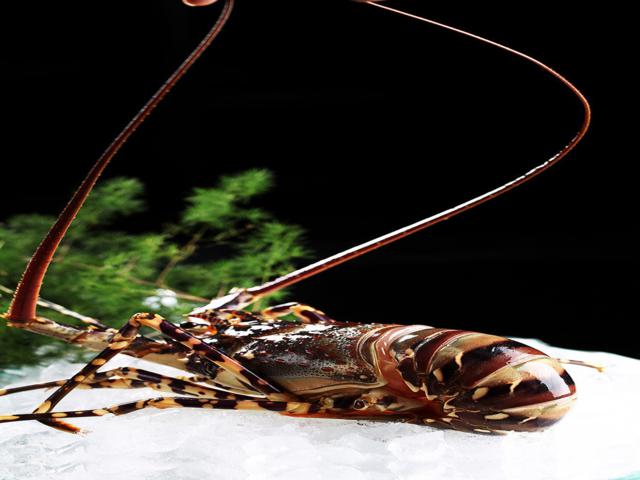1. Yu Sheng Salad: Springtime Auspicious Salad
"Yu sheng" – Springtime Prosperity Salad – is a fish salad, usually made from sliced raw fish, grated vegetables, sesame seeds, plum sauce, etc. In Chinese, "raw fish" also means "prosperous life"; at the same time, each ingredient of the fish salad symbolizes the wish for abundance, good fortune, and success in the coming year. "Yu sheng" is an indispensable dish on the traditional Chinese New Year's feast table on the 7th day of the Lunar New Year. People often toss the fish salad high into the air and make wishes for good fortune in the new year, with the belief that the higher it is tossed, the more luck it will encounter.
At Sofitel Plaza Hanoi, the hotel's chefs have incorporated special flavors into "yu sheng," including raw fish, lime leaves, sesame oil and powder, black pepper, and plum sauce. While dining here, guests can witness a nine-step presentation of the raw fish salad, symbolizing a prosperous new year.
Sofitel Plaza Hanoi Hotel
- No. 1 Thanh Nien Street, Ba Dinh District, Hanoi
- Tel: 04. 3823 8888.
2. Osechi, the lucky food of the Japanese.
Japan, a country renowned for having some of the purest cuisine in the world, often celebrates the New Year with a unique meal called Osechi, in which dishes are served in a multi-compartment lacquered box called a "Jubako".
Typically, an Osechi box contains around nine dishes, meticulously arranged and prepared, with a harmonious blend of colors and flavors, each representing a specific meaning. For example, herring roe (Kazunoko) symbolizes the wish for many children and grandchildren in the new year. Kamaboko, with its alternating red and white slices arranged in rows or patterns, evokes Japan, nicknamed the "Land of the Rising Sun," and conveys a celebratory wish. Kuro-mame soybeans symbolize good health. Shiitake mushrooms, shaped like turtle shells, represent longevity. And Detemaki, with its rolled egg omelet, expresses a wish for many good and joyful days…
An Osechi box contains dishes from land and sea, high-protein dishes and light dishes, grilled dishes and boiled dishes... all combined into a colorful and meaningful garden of flavors, both visually appealing and good for health.
Benkay Japanese Restaurant
- Nikko Hotel Hanoi
- 84 Tran Nhan Tong Street, Hai Ba Trung District, Hanoi
- Tel: 04. 3822 3535.
3. Lobster hot pot, a lucky dish for Singaporeans.
While hot pot is widely known throughout Asia, for Singaporeans it's an indispensable dish during the New Year celebrations. Chef Kenji Tam will introduce diners to the auspicious and heartwarming flavor of this special lobster hot pot. With a fresh twist while retaining the rich flavors of a traditional reunion dish, the broth is delicately prepared with the savory and aromatic taste of miso soup. Adding fresh ingredients, family and friends can enjoy the warm flavors of the spring festival and wish each other good fortune in the new year.

For Singaporeans, lobster is both a tempting dish due to its nutritional value and the auspicious meaning it brings in the new year. While the red color of the lobster symbolizes good fortune, health, and happiness, this king of the sea is also likened to a dragon, a symbol of strength and prosperity. Meanwhile, the green vegetables represent wishes for good health, and the noodles signify longevity.
Emperor Restaurant
- Fortuna Hotel Hanoi
- 6B, Lang Ha Street, Ba Dinh District, Hanoi
- Tel: 04. 3831 3333.
4. Red snapper fillet in sambal sauce
Made from red snapper, also known as huachinango or pargoa, a very popular fish, red snapper fillet in sambal sauce is one of the special dishes that, according to the Chinese, brings good luck.
As its name suggests, this dish features fresh snapper fillets coated in a crispy batter, skillfully seasoned with lemongrass, kale, and sambal sauce, and served with salted egg yolk. The best way to enjoy this exquisite dish is with sticky white rice, a signature Thai accompaniment. It's a sophisticated fusion of two Asian culinary styles: Chinese and Thai.

Fish and eggs, two of the main ingredients of this dish, hold special significance during the Lunar New Year. In Chinese pronunciation, the word "Yu" (meaning fish) sounds similar to the word meaning "abundance." On New Year's Eve, the Chinese often use fish to symbolize their wish for prosperity and abundance for their family in the new year. The Chinese believe that eggs symbolize the fertility and growth of all things. They have a tradition of celebrating a baby's first month with red-dyed boiled eggs and ginger. Therefore, eggs are often served during the New Year as a symbol of wealth and prosperity.
Silk Road Restaurant
- Hanoi Daewoo Hotel
- 360 Kim Mã, Hanoi
- Tel: 04. 3831 5000.

 VI
VI EN
EN



































